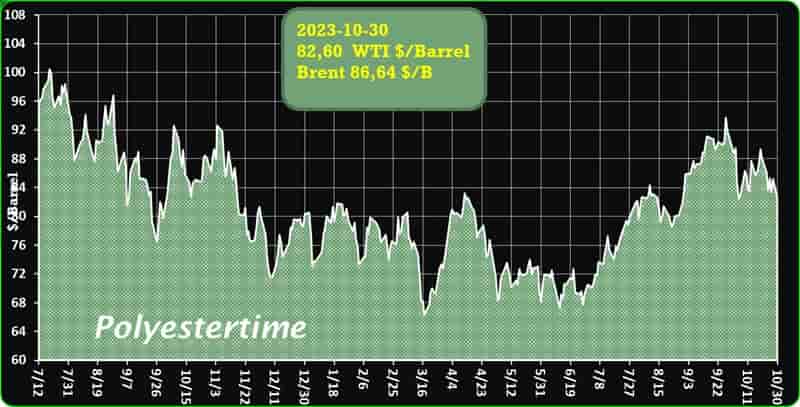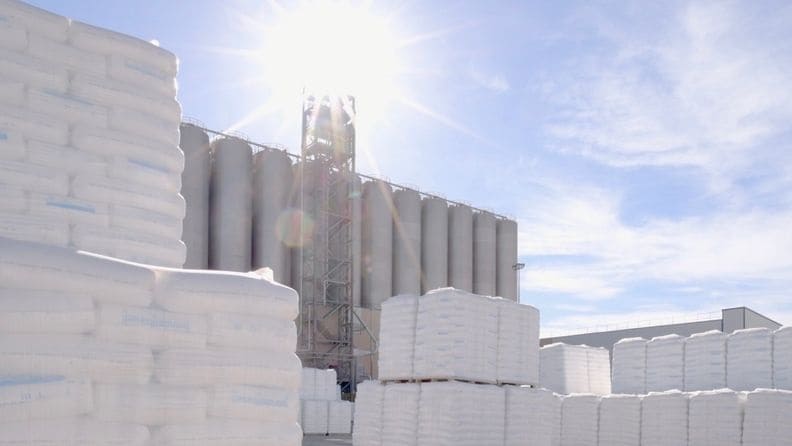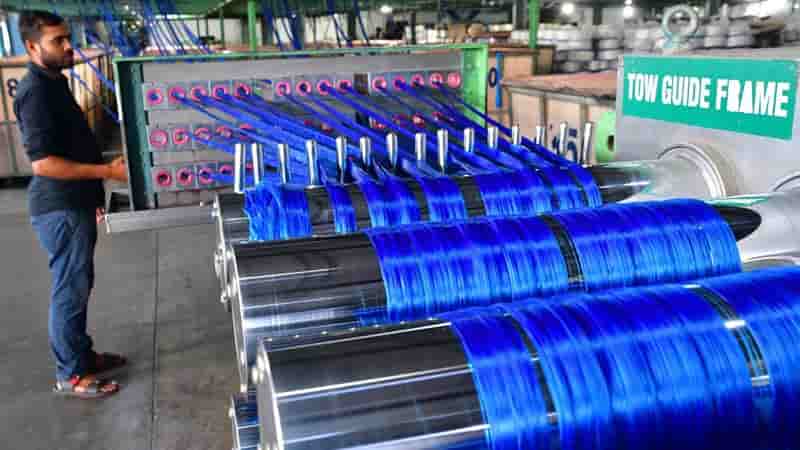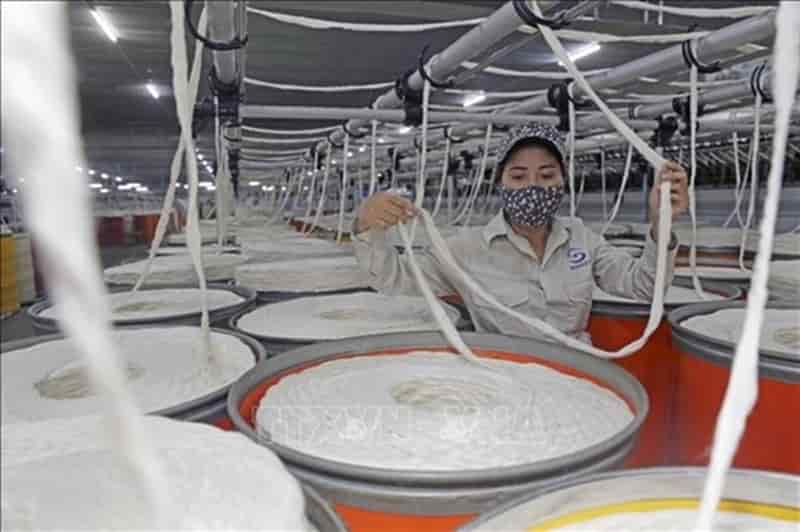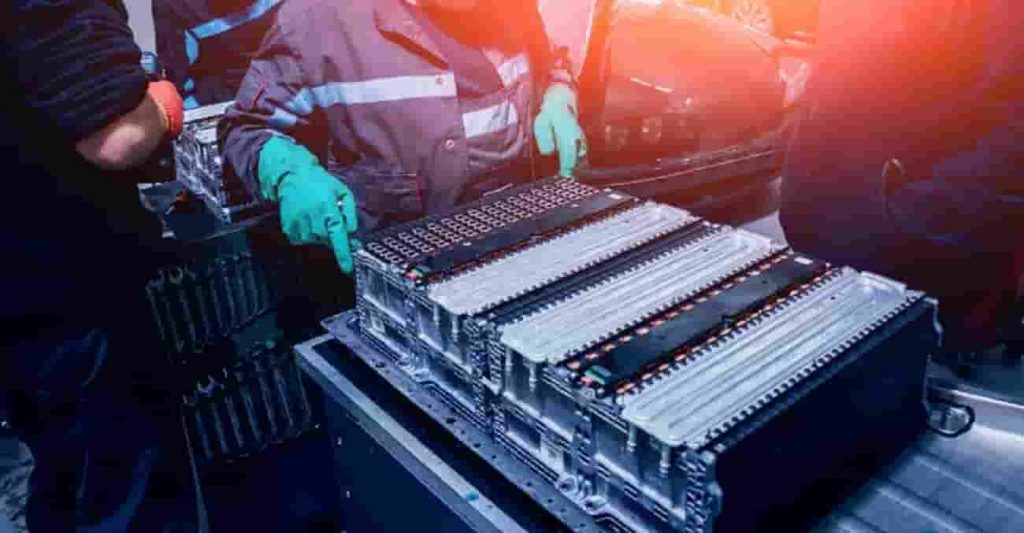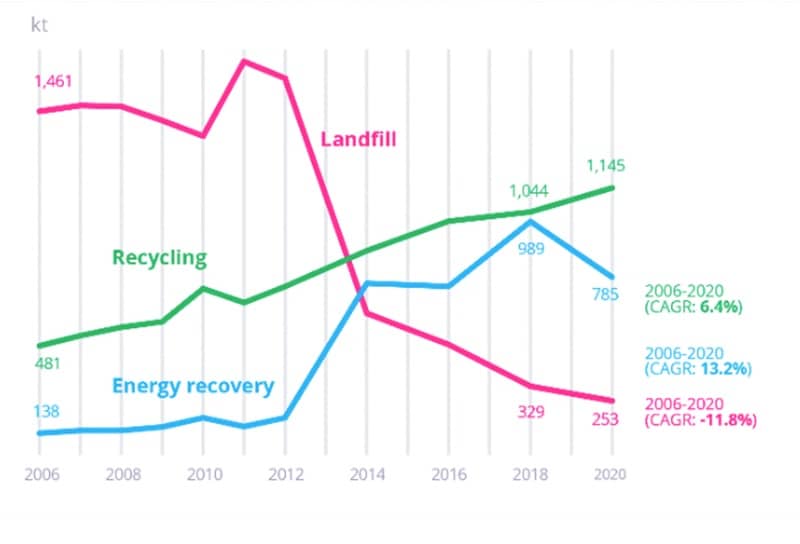Petrochemicals r-Polyester – Artificial Intelligence and the Call for Safety: A Global Initiative 30-10-2023
Petrochemicals r-Polyester

- Polymers : PET – r-PET – Filament grade semidull chips -Filament grade bright chips – Ny6 – Ny66 – PP
- Feedstocks PX – PTA – MEG – CPL – Adipic Acid – Benzene – ACN – Ethylene – Phenol – Naphtha
- Textile : Polyester POY – DTY – FDY – PSF – Recycled Polyester POY – Nylon POY – DTY – FDY Spandex 20-30-40 -Viscose Staple Fiber VSF Acrylic Staple Fiber
Petrochemicals r-Polyester

| Polyestertime | |||
| ITEM | 23/10/2023 | 30/10/2023 | +/- |
| Bottle grade PET chips domestic market | 6,825 yuan/ton | 6,900 yuan/ton | +75 |
| Bottle grade PET chips export market | 875 $/ton | 885 $/ton | +10 |
| Filament grade Semidull chips domestic market | 6,775 yuan/ton | 6,790 yuan/ton | +15 |
| Filament grade Bright chips domestic market | 6,810 yuan/ton | 6,830 yuan/ton | +20 |
| Pure Terephthalic Acid PTA domestic market | 5,710 yuan/ton | 5,900 yuan/ton | +190 |
| Pure Terephthalic Acid PTA export market | 730 $/ton | 730 $/ton | – |
| Monoethyleneglycol MEG domestic market | 3,960 yuan/ton | 4,070 yuan/ton | +110 |
| Monoethyleneglycol MEG export market | 457 $/ton | 468 $/ton | +11 |
| Paraxylene PX FOB Taiwan market
Petrochemicals r-Polyester |
1,027 $/ton | 1,014 $/ton |
-13 |
| Paraxylene PX FOB Korea market | 1,004 $/ton | 991 $/ton | -13 |
| Paraxylene PX FOB EU market | 1,150 $/ton | 1,150 $/ton | – |
| Polyester filament POY 150D/48F domestic market | 7,600 yuan/ton | 7,400 yuan/ton |
-200 |
| Recycled Polyester filament POY domestic market | 7,550 yuan/ton | 7,550 yuan/ton | – |
| Polyester filament DTY 150D/48 F domestic market | 8,950 yuan/ton | 8,700 yuan/ton | -250 |
| Polyester filament FDY 68D24F
Petrochemicals r-Polyester |
8,950 yuan/ton | 8,750 yuan/ton | -200 |
| Polyester filament FDY 150D/96F domestic market | 8,200 yuan/ton | 8,050 yuan/ton | -150 |
| Polyester staple fiber 1.4D 38mm domestic market | 7,450 yuan/ton | 7,500 yuan/ton | +50 |
| Caprolactam CPL domestic market | 12,650 yuan/ton | 12,750 yuan/ton |
+100 |
| Caprolactam CPL overseas market | 1,600 $/ton | 1,600 $/ton | – |
| Nylon 6 chips overseas market | 1,900 $/ton | 1,830 $/ton | -70 |
| Nylon 6 chips conventional spinning domestic market | 13,750 yuan/ton | 13,750 yuan/ton | – |
| Nylon 6 chips high speed spinning domestic market
Petrochemicals r-Polyester |
14,100 yuan/ton | 13,900 yuan/ton | -200 |
| Nylon 6.6 chips domestic market | 19,100 yuan/ton | 19,700 yuan/ton | +600 |
| Nylon6 Filament POY 86D/24F domestic market | 16,200 yuan/ton | 16,100 yuan/ton | -100 |
| Nylon6 Filament DTY 70D/24F domestic market | 18,500 yuan/ton | 18,250 yuan/ton- | -250 |
| Nylon6 Filament FDY 70D/24F | 17,250 yuan/ton | 17,250 yuan/ton | – |
| Spandex 20D domestic market
Petrochemicals r-Polyester |
36,500 yuan/ton | 36,500 yuan/ton | – |
| Spandex 30D domestic market | 35,000 yuan/ton | 35,000 yuan/ton | – |
| Spandex 40D domestic market | 32,200 yuan/ton | 32,000 yuan/ton | -200 |
| Adipic Acid domestic market | 9,400 yuan/ton | 9,300 yuan/ton | -100 |
| Benzene domestic market
Petrochemicals r-Polyester |
8,120 yuan/ton | 8,340 yuan/ton | +220 |
| Benzene overseas market | 918 $/ton | 911 $/ton | -7 |
| Ethylene South East market | 950 $/ton | 970 $/ton | +20 |
| Ethylene NWE market | 786 $/ton | 679 $/ton | -7 |
| Acrylonitrile ACN domestic market
Petrochemicals r-Polyester |
9,700 yuan/ton | 9,500 yuan/ton | -200 |
| Acrylonitrile ACN overseas market | 1,200 $/ton | 1,200 $/ton | – |
| Acrylic staple fiber ASF domestic market | 14,600 yuan/ton | 14,600 yuan/ton | – |
| Viscose Staple Fiber VSF domestic market | 13,400 yuan/ton | 13,350 yuan/ton | -50 |
| PP Powder domestic market
Petrochemicals r-Polyester |
7,220 yuan/ton | 7,350 yuan/ton | +130 |
| Naphtha overseas market | 687 $/ton | 658 $/ton | -29 |
| Phenol domestic market | 8,382 yuan/ton | 8,425 yuan/ton | +43 |
r-PET high end eco-friendly chips =7,800 yuan/ton — 7,800 yuan/ton –
- Petrochemicals chip – Panel for Sustainable Future in Textile in Gaziantep 23-10-2023
- New enzyme technology for environmentally friendly plastic recycling
Petrochemicals chip – Panel for Sustainable Future in Textile in Gaziantep 23-10-2023
Petrochemicals r-Polyester
Artificial Intelligence and the Call for Safety: A Global Initiative
British Prime Minister Rishi Sunak has issued a stark warning about the potential risks and dangers posed by artificial intelligence (AI), likening its potential consequences to that of a nuclear weapon. Sunak’s concerns were articulated on the eve of the first-ever global summit on AI, an event that he passionately supports. The summit, scheduled for November 1 and 2, is set to take place at Bletchley Park, a historic hub of technology where Alan Turing famously cracked the Enigma code during World War II. In his address to the public, Sunak outlined both the tremendous promise and the peril that AI presents, while also revealing the establishment of the world’s first institute dedicated to AI safety.
Sunak emphasized that artificial intelligence, when harnessed responsibly, has the potential to usher in a new era of knowledge, economic growth, human progress, and the resolution of previously insurmountable problems. However, he cautioned that AI also brings forth a new set of dangers and fears that need to be addressed proactively. A comprehensive government report, authored by a panel of 50 experts, highlights AI’s potential as an “existential threat” in the future. Sunak is urging the global community to address these concerns now to ensure the utmost peace of mind for citizens.
One of the central concerns is the potential misuse of AI technology, with threats including fraud, cyberattacks, and, by 2025, the possibility of enhancing the capabilities of terrorist groups in planning attacks and propagating extremist propaganda. Sunak stated that AI could even facilitate the development of chemical or biological weapons, with the dire possibility of terrorists exploiting AI for mass destruction. Criminals could utilize AI for a wide range of malicious activities, from cyberattacks to disinformation campaigns and child exploitation. In the most extreme scenario, there is the risk of losing control over superintelligent AI, raising concerns about humanity’s very existence.
To address these concerns, the United Kingdom will be the birthplace of the world’s first center for AI safety. This institute will specialize in the analysis, evaluation, and testing of new AI models, contributing valuable insights to the global AI safety discourse. The primary objective of the center is to advance humanity’s understanding of AI safety and assess potential risks, including social damage such as bias and misinformation. Sunak’s ambition is to position the UK as a global leader in AI regulation, recognizing the immense potential benefits, particularly in fields like medicine and science, while acknowledging the paramount importance of safety and security.
The upcoming Global AI Summit at Bletchley Park aims to be a platform for collaboration, involving institutions, international partners, AI experts, tech companies, and civil society. With approximately 100 attendees, the event will feature notable figures like Google DeepMind CEO Demis Hassabis and U.S. Vice President Kamala Harris. The summit also anticipates Chinese participation, highlighting the necessity of engaging with Beijing in shaping a cohesive strategy for AI, despite challenges. The British government has set forth five key objectives for the summit, including promoting a shared understanding of AI risks, fostering international collaboration, recommending organizational safety measures, exploring AI security research, and demonstrating the potential for beneficial global AI development.
The United Nations is also stepping up its efforts by creating a Committee for Artificial Intelligence, which consists of around 40 experts from diverse backgrounds. This committee, led by Amandeep Singh Gill, UN envoy for technology, and including notable members like Father Paolo Benanti from the Pontifical Gregorian University in Italy, is tasked with formulating common rules for AI. Their mission encompasses evaluating the benefits and risks of AI and its contributions to sustainable development and international cooperation.
As the world grapples with the profound implications of artificial intelligence, these initiatives demonstrate a collective commitment to addressing the challenges and risks while harnessing the potential of AI for the betterment of humanity. The coming years will reveal whether these global efforts can effectively regulate and safeguard the development and deployment of AI technology, ensuring it remains a force for good in the world.


